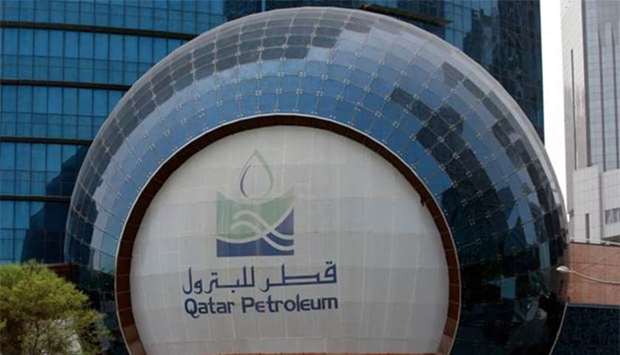Qatar Petroleum has achieved many milestones in the first half of the year, clinching farm-in deals and acquiring promising exploration blocks around the world with major players.
One of most cost-effective producers in the world, QP operates all oil and gas activities in Qatar and elsewhere, including exploration, production and refining.
The energy major has already announced that it is planning greater international upstream expansion and still looking for good investment opportunities around the globe.
Early in the year, QP and Kuwait Petroleum Corporation (KPC) entered into a long-term sale and purchase agreement for the supply of up to 3mn tonnes per year of liquefied natural gas (LNG) to Kuwait.
Under the 15-year agreement concluded in Janaury, LNG deliveries to Kuwait’s new world-class receiving terminal at Al-Zour Port will commence in 2022 to support Kuwait’s growing energy needs and demand, particularly in the power generation sector.
In February, an affiliate of QP and the French LNG terminal operator Elengy, a subsidiary of ENGIE Group, entered into a long-term agreement for LNG receiving, storage and regasification services at the Montoir-de-Bretagne LNG Terminal in France.
Under the agreement, Qatar Terminal Limited (QTL) - a QP subsidiary - will subscribe to the equivalent of almost 3mn tonnes per annum of the terminal’s throughput capacity for a term up to 2035.
Montoir-de-Bretagne LNG will thereby become a new LNG import terminal position for QP in Europe, facilitating the supply of Qatari and internationally sourced LNG to French and European customers.
The agreement is a result of a formal “Open Subscription Period” process that was conducted and concluded during the second half of 2019 pursuant to the rules of the French Energy Regulatory Commission (CRE).
In March, QP entered into a binding agreement to acquire Yara’s 25% stake in Qatar Fertiliser Company (Qafco). The transaction marked the conclusion of a successful, long standing partnership.
Since its establishment as a joint venture company in 1969, Qafco has become the world’s largest single-site urea producer, representing a significant percentage of the world’s traded urea volumes.
Prior to this transaction, Qafco was owned by Industries Qatar with a 75% share and Yara of Norway with a 25% share.
In April, QP announced the start of the development drilling campaign for the North Field East Project, or NFE (previously known as the North Field Expansion Project).
This phase of the North Field expansion project will increase Qatar’s LNG production capacity from 77mn tonnes per year (Mtpy) to 110Mtpy.
The second phase of the North Field LNG Expansion Project, called the North Field South Project (NFS), will further increase Qatar’s LNG production capacity from 110Mtpy to 126Mtpy.
QP had earlier awarded a number of contracts for jack-up drilling rigs to be utilised for the drilling of 80 development wells for the NFE.
During April, QP announced that it entered into an agreement to reserve LNG ship construction capacity in China to be utilised for QP's future LNG carrier fleet requirements, including those of its ongoing North Field expansion projects.
The agreement was entered into between QP and Hudong-Zhonghua Shipbuilding Group Company (Hudong), a wholly owned subsidiary of China State Shipbuilding Corporation Limited (CSSC).
Pursuant to the agreement, a significant portion of Hudong's LNG ship construction capacity will be reserved for QP through the year 2027.
And this month QP entered into many major international deals including farm-in agreements in Cote d'Ivoire and Mexico.
QP signed three farm-in agreements to acquire about 30% of Total’s participating interest in blocks 15, 33 and 34 located in the Campeche basin, offshore Mexico.
Each of the farm-in deals is subject to customary regulatory and other approvals by Total’s existing partners and the government of Mexico.
QP also entered into a farm-in agreement with Total to acquire a 45% participating interest in blocks CI-705 and CI-706, located in the Ivorian-Tano basin, offshore the Republic of Cote d'Ivoire.
The two blocks cover an area of approximately 3,200 sq km, and present multi-target hydrocarbon prospects in water depths ranging from 1,000 to 2,000m, 35km from shore and about 100km from nearby Foxtrot, Espoir and Baobab fields.
During a webinar organised by the US-Qatar Business Council recently, HE the Minister of State for Energy Affairs, Saad Sherida al-Kaabi said, "We are going full steam ahead with the North Field expansion projects to raise Qatar’s LNG production capacity from 77mn tonnes per year now to 110mn tonnes per year by 2025 and 126mn tonnes per year by 2027.”
He said the final onshore commercial bids will be received by September and that contracts will be awarded by the end of the year.
Al-Kaabi also highlighted a number of important milestones in the development of the North Field have started , including the start of a drilling campaign for some 80 development wells, insulation of offshore well head jackets, and the reservation of capacity to build LNG ships that would ensure meeting Qatar’s future LNG fleet requirements.


